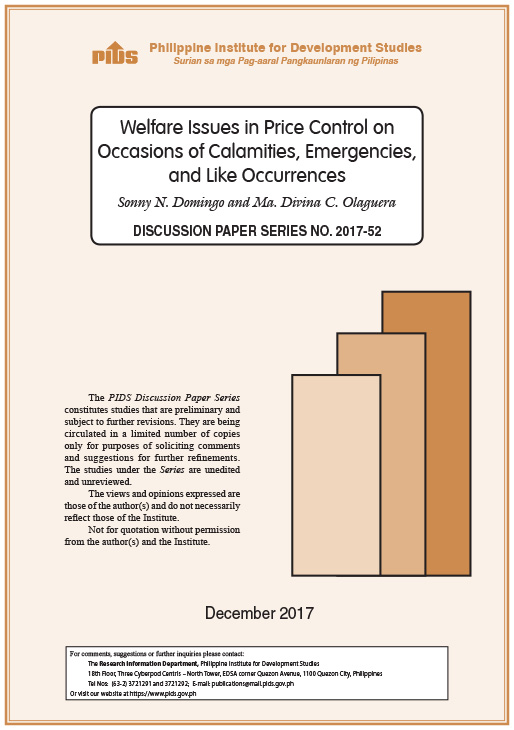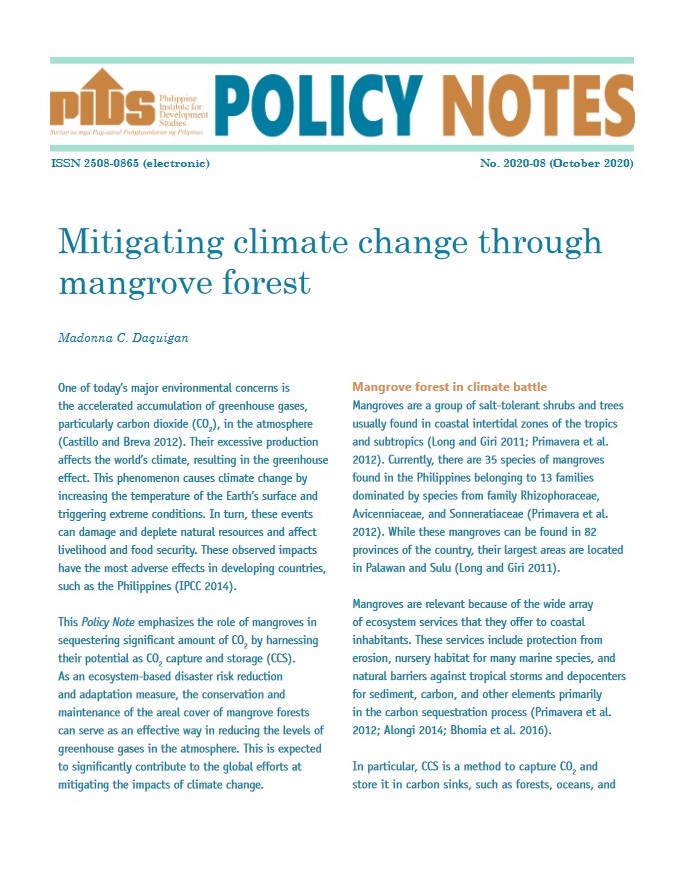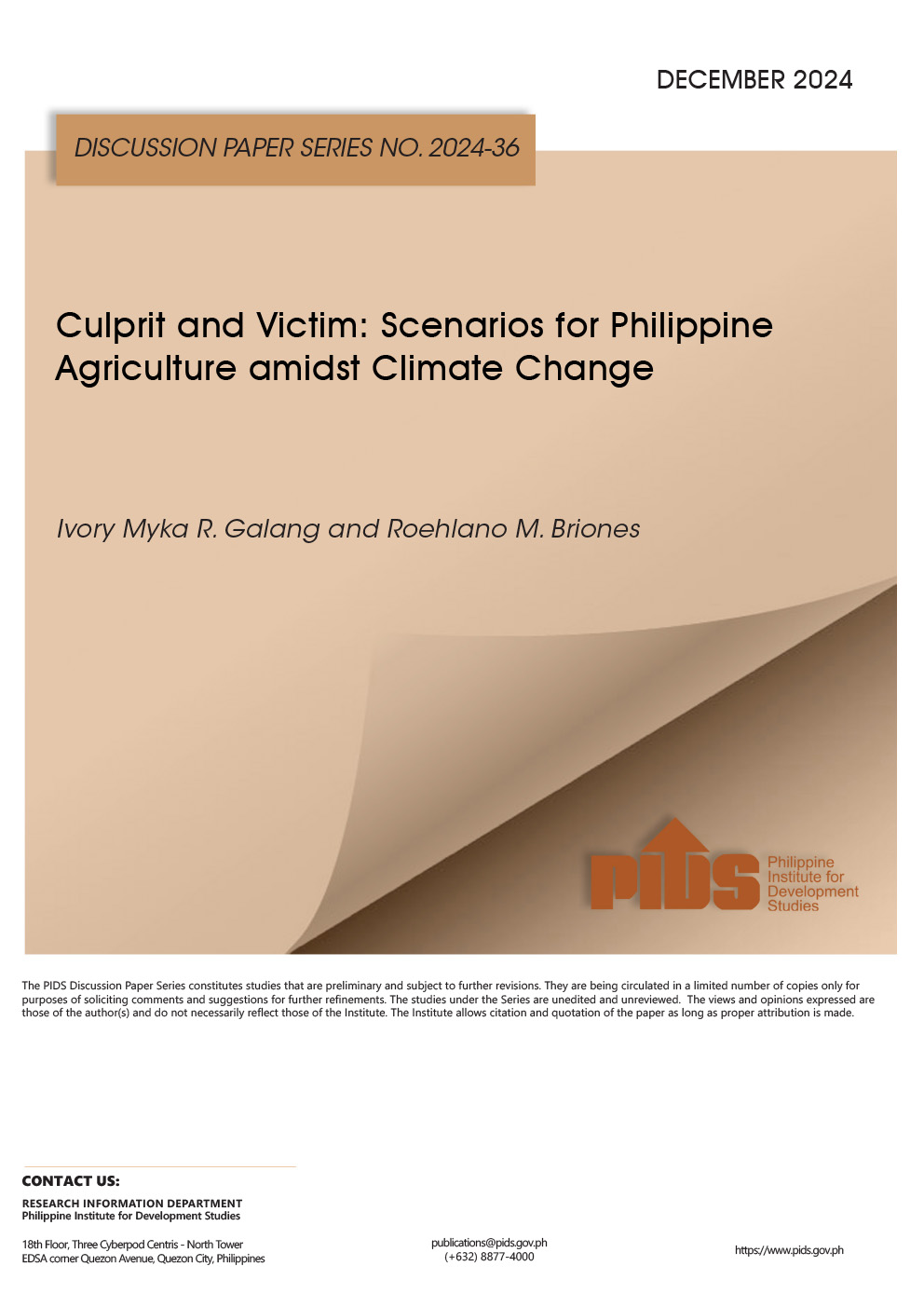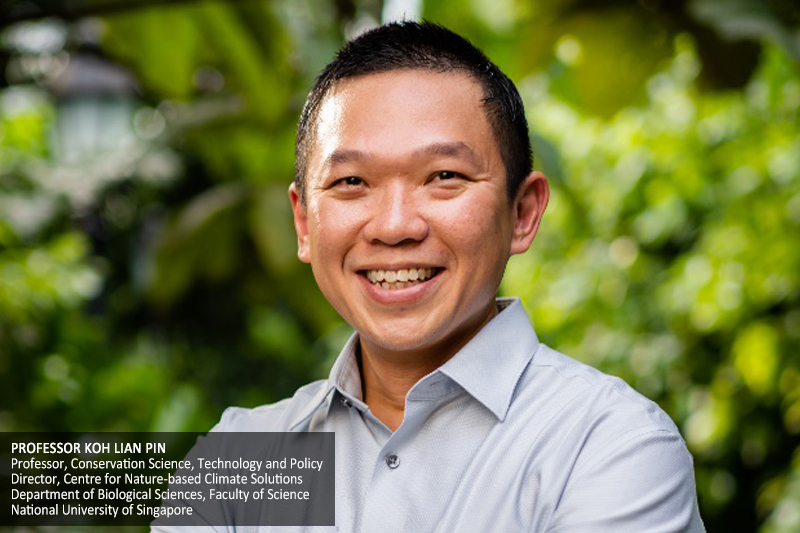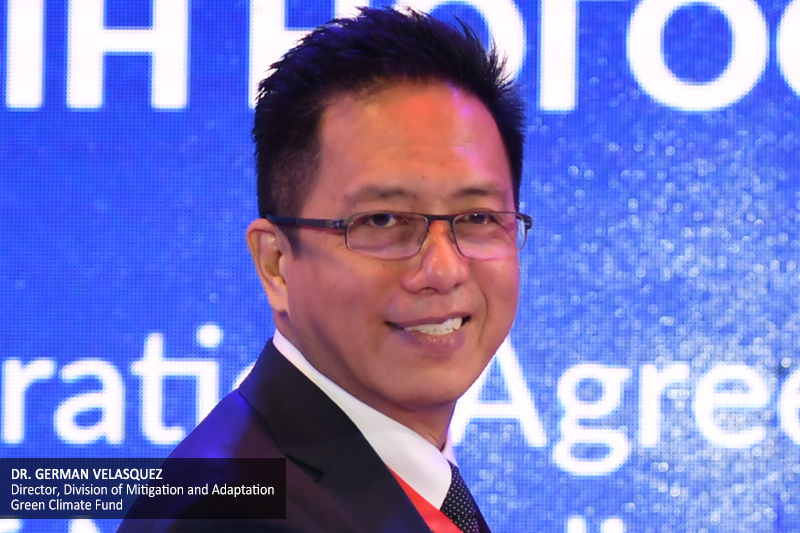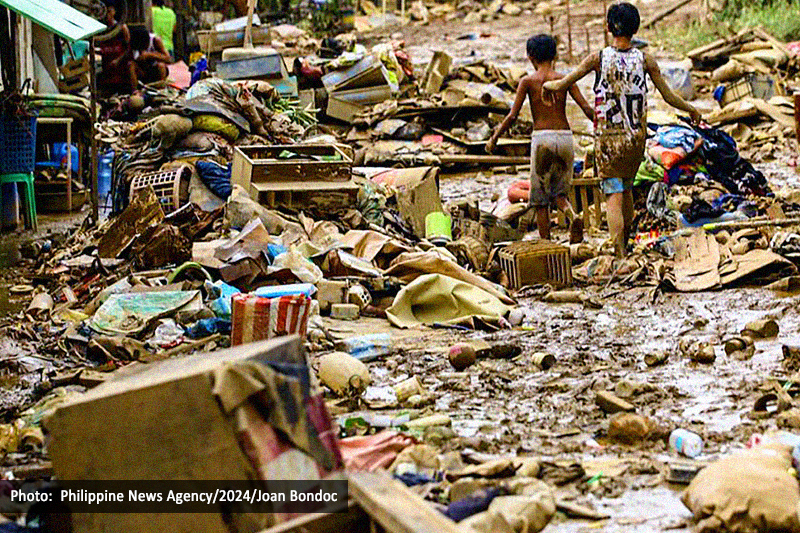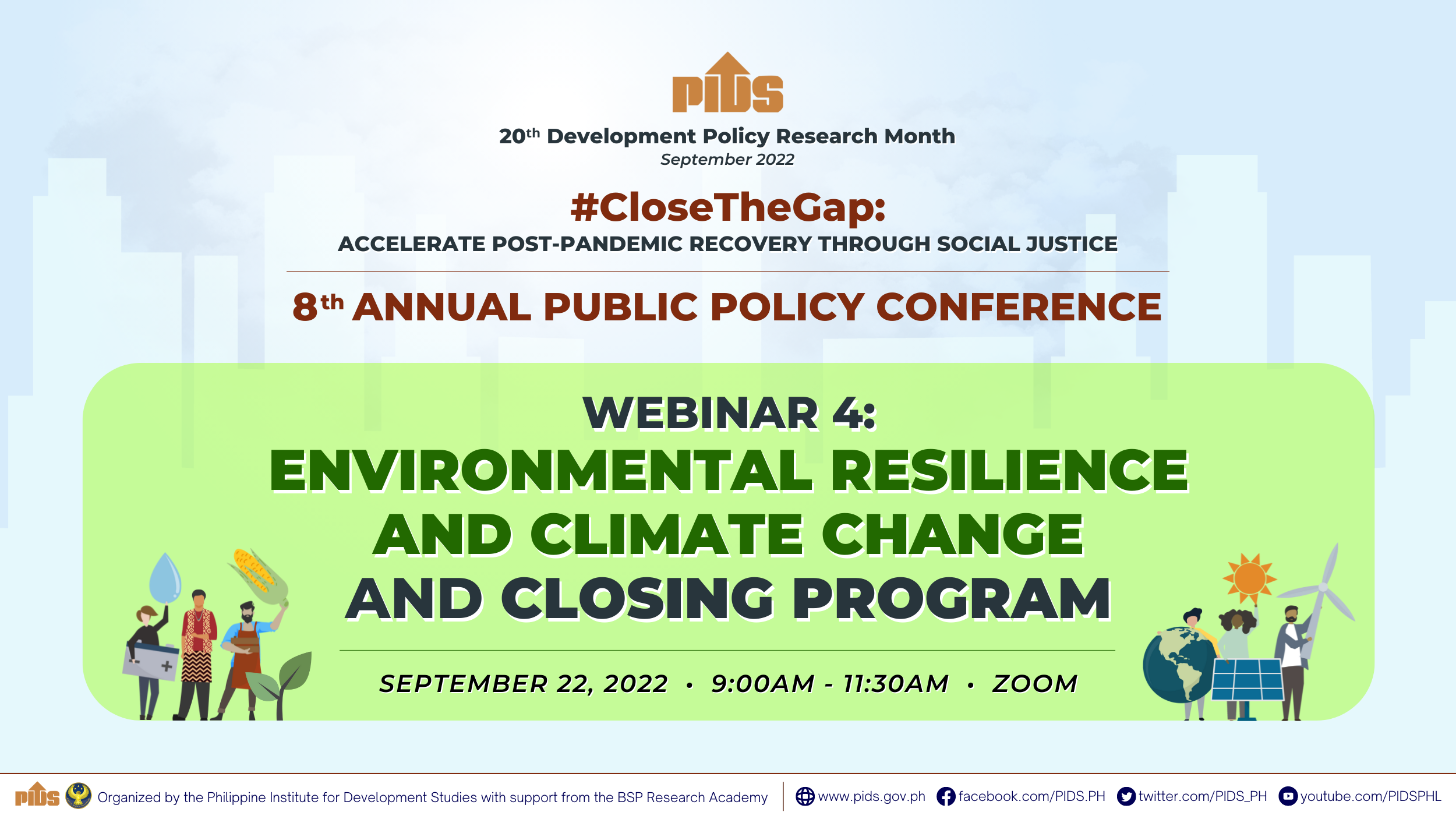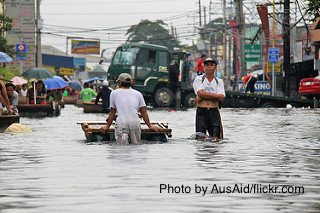
With the Philippines’ vulnerability to disasters, the government should make social protection programs adaptive to climate change and disasters.
According to a study published by state think tank Philippine Institute for Development Studies (PIDS), there is a need to unify the country’s social protection, climate change adaptation, and disaster risk reduction efforts.
This, according to authors Connie Bayudan-Dacuycuy and Lora Kryz Baje, PIDS senior research fellow and research analyst, respectively, is because climate change and natural disasters can undermine the social protection programs of the government.
Furthermore, the authors explained that “without adequate social protection in place, households may adopt adverse coping mechanisms in the face of slow-onset climatic shifts, such as changing eating patterns that may result to poor nutrition, pulling children out of school, or engaging them into child labor.”
They also argued that climate change adaptation and disaster risk reduction alone are insufficient in addressing the said vulnerabilities.
At present, the Department of Social Welfare and Development (DSWD) plays a big role in providing social protection programs to the poor, vulnerable, and disadvantaged, as well as protective services during crisis situations. However, the study urged the Climate Change Commission (CCC, in-charge of climate change adaptation), the National Disaster Risk Reduction and Management Council (NDRRMC, in-charge of disaster risk reduction), and the Office of Civil Defense (OCD, implementing arm of the NDRRMC), to work together to “build the resilience of the poor and the vulnerable”.
To do this, the government should first review its existing social protection programs and identify those that can be integrated with climate change adaptation and disaster risk reduction.
Specifically, the authors mentioned DSWD’s flagship antipoverty program, the Pantawid Pamilyang Pilipino Program, as a good starting point that can include “environmental protection in its scope, such as reforestation, prevention of illegal logging, solid waste management, and soil conservation or backyard gardening”.
On the part of the CCC, the authors said it should ensure that proposals to be evaluated for the People’s Survival Fund (PSF) include social protection components.
“The 3As framework (anticipatory/ absorptive/adaptive) mapped against the PPP-T framework (provision/ promotive/protective-transformative) can be used to judge the social protection components of the PSF proposals,” the authors explained, adding that the DSWD should also be part of the CCC’s technical evaluation committee.
In addition, the authors recommended to integrate social protection programs and instruments, such as cash for work incentives and food for work programs, in other environmental initiatives of the government like the Department of Environment and Natural Resources’ greenhouse gases emission mitigation strategy—the Reducing Emissions from Deforestation and Forest Degradation (REDD+)—given that poverty alleviation is one of its visions.
Considering that the concept of adaptive social protection programs is still new, the study also underscored the importance of documenting good practices in other countries to learn more about their impact and effectiveness in reducing climate change and disaster vulnerabilities. ###
This press release is based on PIDS policy note titled “Toward an adaptive social protection in the Philippines”.
According to a study published by state think tank Philippine Institute for Development Studies (PIDS), there is a need to unify the country’s social protection, climate change adaptation, and disaster risk reduction efforts.
This, according to authors Connie Bayudan-Dacuycuy and Lora Kryz Baje, PIDS senior research fellow and research analyst, respectively, is because climate change and natural disasters can undermine the social protection programs of the government.
Furthermore, the authors explained that “without adequate social protection in place, households may adopt adverse coping mechanisms in the face of slow-onset climatic shifts, such as changing eating patterns that may result to poor nutrition, pulling children out of school, or engaging them into child labor.”
They also argued that climate change adaptation and disaster risk reduction alone are insufficient in addressing the said vulnerabilities.
At present, the Department of Social Welfare and Development (DSWD) plays a big role in providing social protection programs to the poor, vulnerable, and disadvantaged, as well as protective services during crisis situations. However, the study urged the Climate Change Commission (CCC, in-charge of climate change adaptation), the National Disaster Risk Reduction and Management Council (NDRRMC, in-charge of disaster risk reduction), and the Office of Civil Defense (OCD, implementing arm of the NDRRMC), to work together to “build the resilience of the poor and the vulnerable”.
To do this, the government should first review its existing social protection programs and identify those that can be integrated with climate change adaptation and disaster risk reduction.
Specifically, the authors mentioned DSWD’s flagship antipoverty program, the Pantawid Pamilyang Pilipino Program, as a good starting point that can include “environmental protection in its scope, such as reforestation, prevention of illegal logging, solid waste management, and soil conservation or backyard gardening”.
On the part of the CCC, the authors said it should ensure that proposals to be evaluated for the People’s Survival Fund (PSF) include social protection components.
“The 3As framework (anticipatory/ absorptive/adaptive) mapped against the PPP-T framework (provision/ promotive/protective-transformative) can be used to judge the social protection components of the PSF proposals,” the authors explained, adding that the DSWD should also be part of the CCC’s technical evaluation committee.
In addition, the authors recommended to integrate social protection programs and instruments, such as cash for work incentives and food for work programs, in other environmental initiatives of the government like the Department of Environment and Natural Resources’ greenhouse gases emission mitigation strategy—the Reducing Emissions from Deforestation and Forest Degradation (REDD+)—given that poverty alleviation is one of its visions.
Considering that the concept of adaptive social protection programs is still new, the study also underscored the importance of documenting good practices in other countries to learn more about their impact and effectiveness in reducing climate change and disaster vulnerabilities. ###
This press release is based on PIDS policy note titled “Toward an adaptive social protection in the Philippines”.

